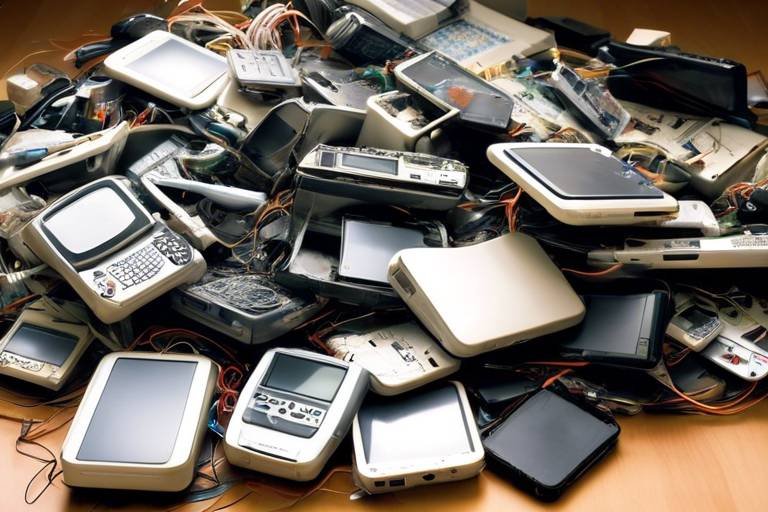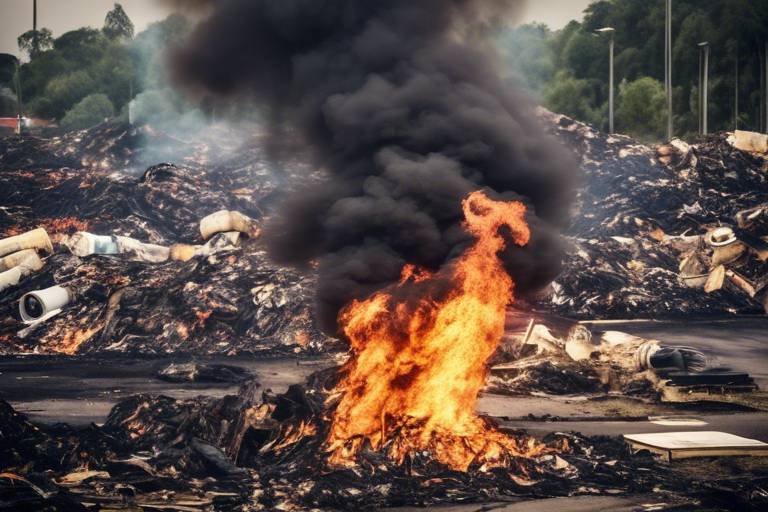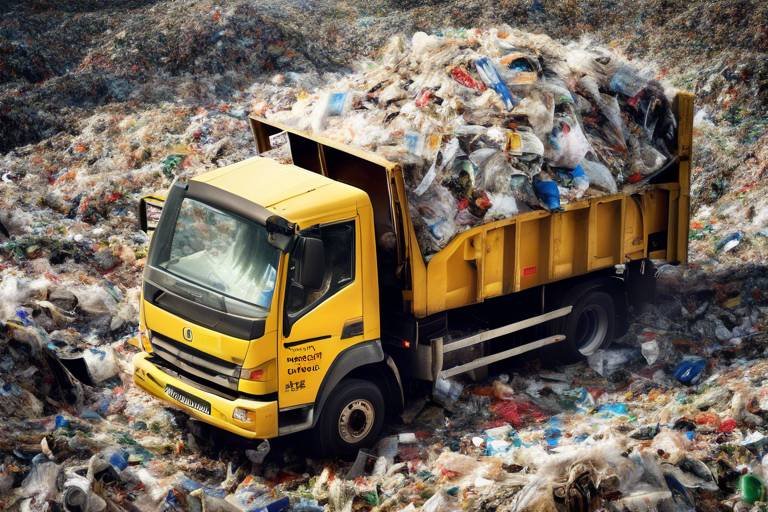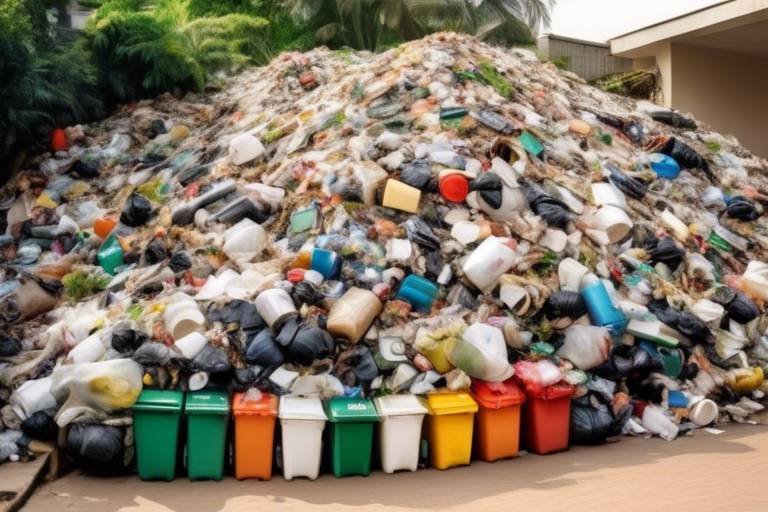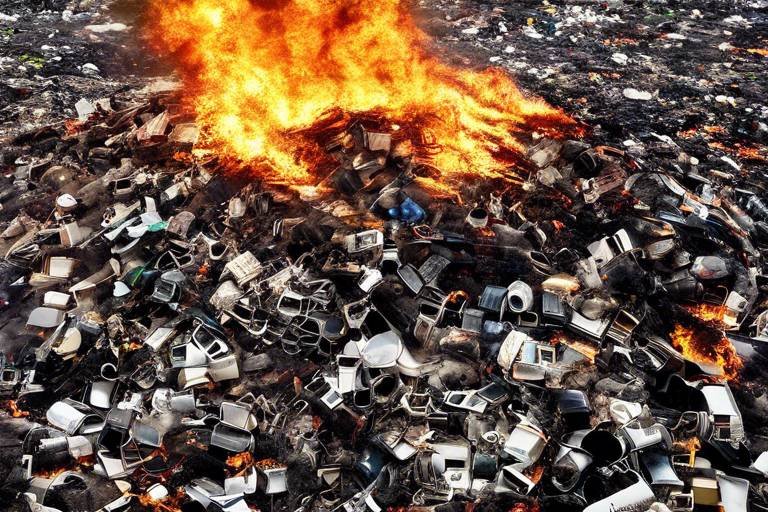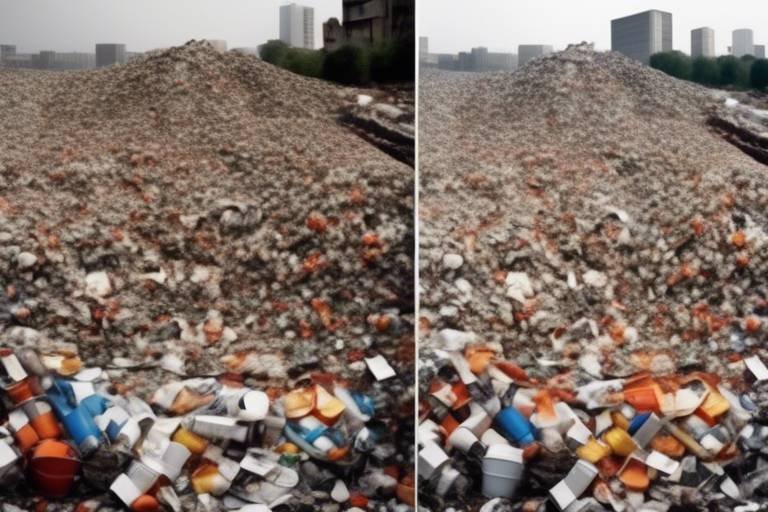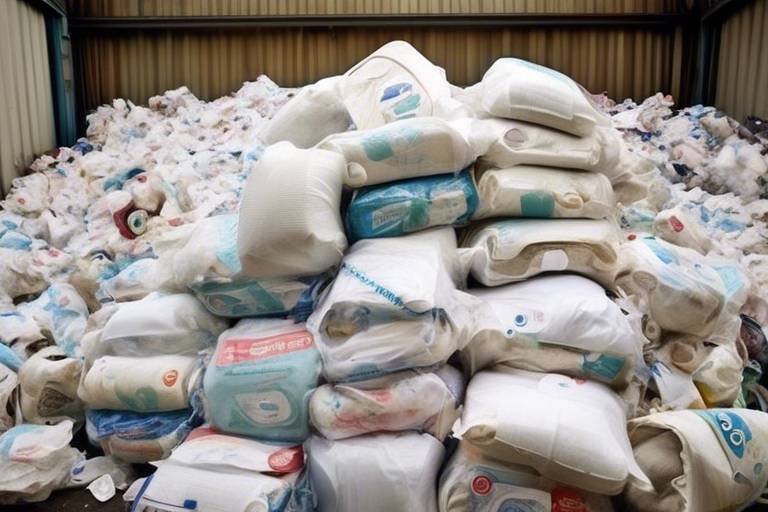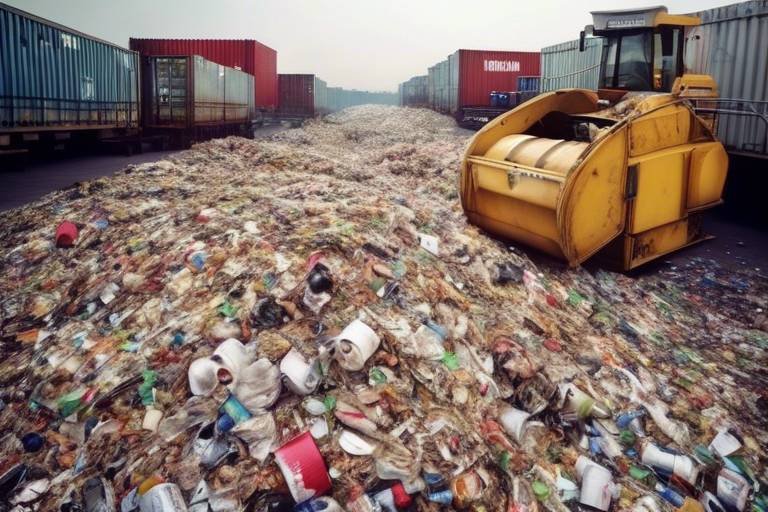How to Recycle Electronics - A Step-by-Step Guide
In today’s tech-savvy world, we often find ourselves upgrading our gadgets more frequently than we might like to admit. With every new smartphone, laptop, or tablet, a wave of electronic waste (e-waste) is generated. But have you ever stopped to think about what happens to those old devices? Recycling electronics is not just a trend; it’s a responsibility we all share. In this guide, we’ll walk you through the essential steps for recycling your electronics, ensuring that you do your part in protecting our planet.
Recycling electronics is crucial for several reasons. First and foremost, it helps reduce the amount of waste that ends up in landfills. Did you know that electronic waste is one of the fastest-growing waste streams in the world? By recycling, we can conserve natural resources and minimize environmental pollution. When electronic devices are disposed of improperly, they can leak harmful substances into the soil and water, causing serious environmental issues. Understanding the significance of recycling can motivate both individuals and businesses to adopt responsible disposal practices.
Not every electronic device can be recycled, but many common items can be. Recognizing which electronics are eligible for recycling is essential for effective waste management. Here’s a quick rundown of some of the most commonly recycled electronics:
- Smartphones and Tablets: These devices are often upgraded, leading to a significant amount of electronic waste.
- Computers and Laptops: Containing metals and plastics, these devices can be recycled to recover valuable materials.
- Televisions: Older models can contain hazardous materials that need to be handled with care.
Household electronics such as microwaves, toasters, and televisions often contain hazardous materials like lead and mercury. Knowing which of these items can be recycled helps prevent these harmful substances from entering landfills. For instance, many people don’t realize that their old microwaves can be recycled. If you’ve recently upgraded your kitchen appliances, consider the environmental impact of your old devices and take the necessary steps to recycle them responsibly.
Smartphones and tablets are perhaps the most frequently replaced electronic devices. With every new model release, countless old devices are discarded. Proper recycling of these gadgets not only recovers valuable materials like gold and copper but also protects sensitive data. Before recycling, make sure to wipe your device clean of any personal information. Think of it like cleaning out your closet; you wouldn’t donate clothes with your personal information still attached, right?
Computers and laptops are packed with recyclable components, including metals and plastics. When you decide to upgrade, consider the environmental impact of your old device. Instead of tossing it in the trash, look for local recycling programs that can responsibly handle the disposal. By doing this, you're not just reducing waste; you're also contributing to a circular economy where materials are reused and repurposed.
Businesses generate a significant amount of electronic waste, often more than households. Proper recycling practices for commercial electronics can greatly reduce environmental footprints and promote sustainability in corporate operations. Companies should establish a recycling policy that includes regular audits of their electronic waste and partnerships with certified recycling facilities. Think of it as a corporate responsibility initiative; it not only helps the planet but also enhances the company's reputation.
Recycling electronics can be straightforward when following a structured process. Here’s how you can ensure your devices are disposed of responsibly:
Before recycling, it’s essential to prepare your electronics. Start by removing any personal data—this is crucial for protecting your information. Additionally, clean the devices to ensure they are in good condition for recycling. Think of it like preparing a gift; you want to present it nicely, right? This preparation not only protects your information but also facilitates the recycling process.
Locating a certified recycling facility is crucial for responsible disposal. Many local and national programs offer safe and environmentally friendly options for recycling your electronic devices. You can often find these facilities through a quick online search or by checking with your local waste management department. Remember, not all recycling centers are created equal; make sure to choose one that follows proper recycling protocols.
Q: Can I recycle batteries with my electronics?
A: Many recycling facilities accept batteries, but it’s best to check with them first. Some locations have special programs for battery disposal.
Q: What should I do if my electronics are broken?
A: Even broken electronics can often be recycled. Many components can be salvaged, so don’t hesitate to take them to a recycling facility.
Q: Is there a fee for recycling electronics?
A: Some facilities may charge a fee, while others offer free recycling. Check beforehand to avoid surprises.
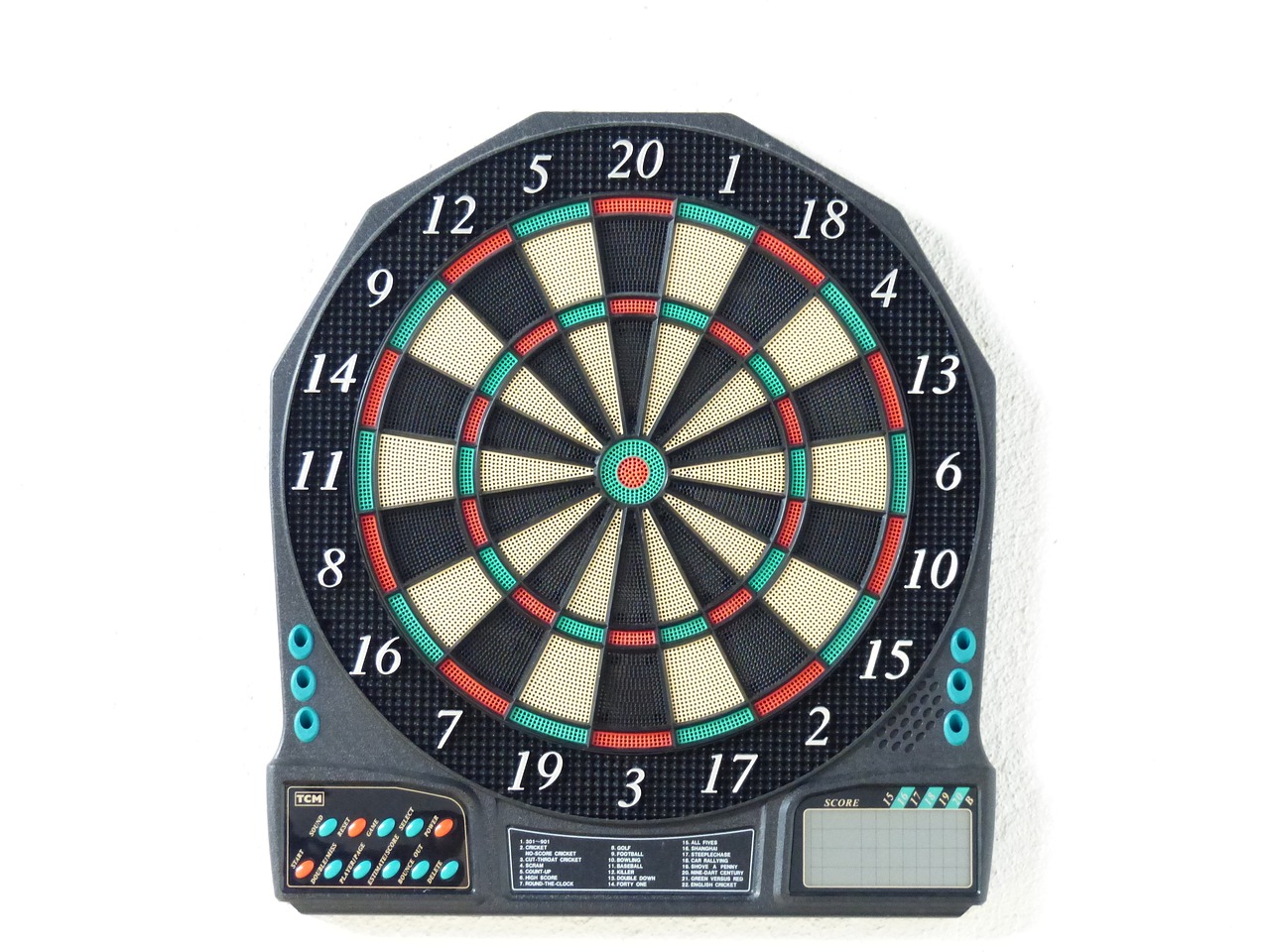
The Importance of Recycling Electronics
This guide provides essential information on recycling electronics, including why it's important, what can be recycled, and the steps to ensure proper disposal and environmental responsibility.
Recycling electronics is not just a trend; it's a necessity in today's fast-paced, tech-driven world. With technology evolving at lightning speed, we find ourselves upgrading our devices more frequently than ever before. But have you ever stopped to think about what happens to your old electronics? Unfortunately, many of these devices end up in landfills, contributing to a massive environmental crisis. By recycling electronics, we can significantly reduce waste in landfills, conserve valuable natural resources, and minimize environmental pollution.
When you recycle your electronics, you’re not just clearing out your closet; you’re actively participating in a global effort to protect our planet. Here are a few key reasons why recycling electronics is so important:
- Reducing Landfill Waste: Electronic devices take up a lot of space in landfills and can take hundreds of years to decompose. By recycling, you help divert these materials from landfills.
- Conserving Resources: Many electronics contain precious metals like gold, silver, and copper. Recycling allows us to recover these materials, reducing the need for mining and conserving our planet's resources.
- Preventing Pollution: Electronics often contain hazardous materials such as lead, mercury, and cadmium. When these devices are improperly disposed of, they can leach into the soil and water, causing serious environmental harm.
Understanding the significance of recycling electronics can motivate both individuals and businesses to participate in responsible disposal practices. Imagine if everyone took a small step to recycle their old gadgets; the cumulative effect could be monumental! It's much like planting a tree: one tree may not seem like much, but a forest can change the landscape.
Moreover, recycling electronics creates a circular economy where materials are reused rather than discarded. This not only benefits the environment but also stimulates job creation in the recycling and refurbishing sectors. By promoting a culture of recycling, we can foster innovation and sustainability within our communities.
In conclusion, the importance of recycling electronics cannot be overstated. It’s a simple yet powerful action that contributes to a healthier planet. So, the next time you upgrade your smartphone or replace your laptop, remember the impact your choices have on the environment. Let's work together to make responsible recycling a priority!
Not all electronic devices are recyclable, but many common items like smartphones, computers, and televisions can be. Identifying which electronics are eligible for recycling is crucial for effective waste management.
Household electronics such as microwaves, toasters, and televisions often contain hazardous materials. Knowing which of these items can be recycled helps prevent harmful substances from entering landfills.
Smartphones and tablets are frequently upgraded, leading to a significant amount of electronic waste. Proper recycling of these devices not only recovers valuable materials but also protects sensitive data.
Computers and laptops contain various recyclable components, including metals and plastics. Understanding how to recycle these devices responsibly can help reduce their environmental impact.
Businesses often generate large amounts of electronic waste. Proper recycling practices for commercial electronics can significantly reduce environmental footprints and promote sustainability in corporate operations.
Recycling electronics can be straightforward when following a structured process. This section outlines the necessary steps to ensure your devices are disposed of responsibly and effectively.
Before recycling, it’s essential to prepare your electronics by removing personal data and ensuring that devices are clean. This preparation helps protect your information and facilitates the recycling process.
Locating a certified recycling facility is crucial for responsible disposal. Many local and national programs offer safe and environmentally friendly options for recycling your electronic devices.
Q: What happens to my electronics when I recycle them?
A: When you recycle electronics, they are taken to a facility where they are dismantled, and valuable materials are extracted for reuse. Hazardous materials are disposed of safely to prevent environmental contamination.
Q: Can I recycle my electronics at home?
A: While some small electronics can be recycled at home, it's best to take them to a certified recycling facility to ensure they are handled properly.
Q: Are there any fees for recycling electronics?
A: Many recycling programs are free, but some may charge a fee, especially for larger items like televisions. Always check with your local facility for specific details.

What Electronics Can Be Recycled?
When it comes to recycling electronics, not every device is created equal. In fact, many people are surprised to learn that a significant number of their old gadgets can be recycled, while others cannot. Understanding what can and cannot be recycled is crucial for effective waste management and environmental responsibility. By recycling the right items, you can help reduce the amount of electronic waste that ends up in landfills, which is a huge win for our planet!
Many common household items are eligible for recycling, and it’s essential to identify them. For instance, devices like smartphones, laptops, and televisions are typically recyclable. These items often contain valuable materials such as metals, plastics, and glass that can be recovered and reused. However, not everything in your home can be tossed into the recycling bin. For example, items like microwaves and toasters may contain hazardous materials that require special handling. Therefore, knowing what can be recycled is not just about convenience; it’s about ensuring that we’re doing our part to protect the environment.
Let’s take a closer look at some of the most common electronics that can be recycled:
- Smartphones and Tablets: These devices are frequently upgraded, leading to a pile of old models that can be recycled. Not only does recycling recover valuable materials, but it also ensures that sensitive data is handled properly.
- Computers and Laptops: The components of these devices, including metals and plastics, can be recycled effectively. Understanding how to recycle them responsibly can significantly reduce their environmental impact.
- Televisions: Older models, especially CRTs, can contain hazardous materials. Recycling helps safely dispose of these substances while recovering valuable parts.
In addition to household electronics, businesses also produce a vast amount of electronic waste. Commercial electronics, such as servers and office equipment, can be recycled to promote sustainability in corporate operations. By implementing responsible recycling practices, companies can significantly reduce their environmental footprints while also adhering to regulations regarding electronic waste disposal.
In summary, understanding what electronics can be recycled is vital for both individuals and businesses. By taking the time to identify recyclable items, you can contribute to a healthier planet and promote sustainable practices in your community. Remember, every little bit counts, and your efforts can lead to significant positive changes in the environment!
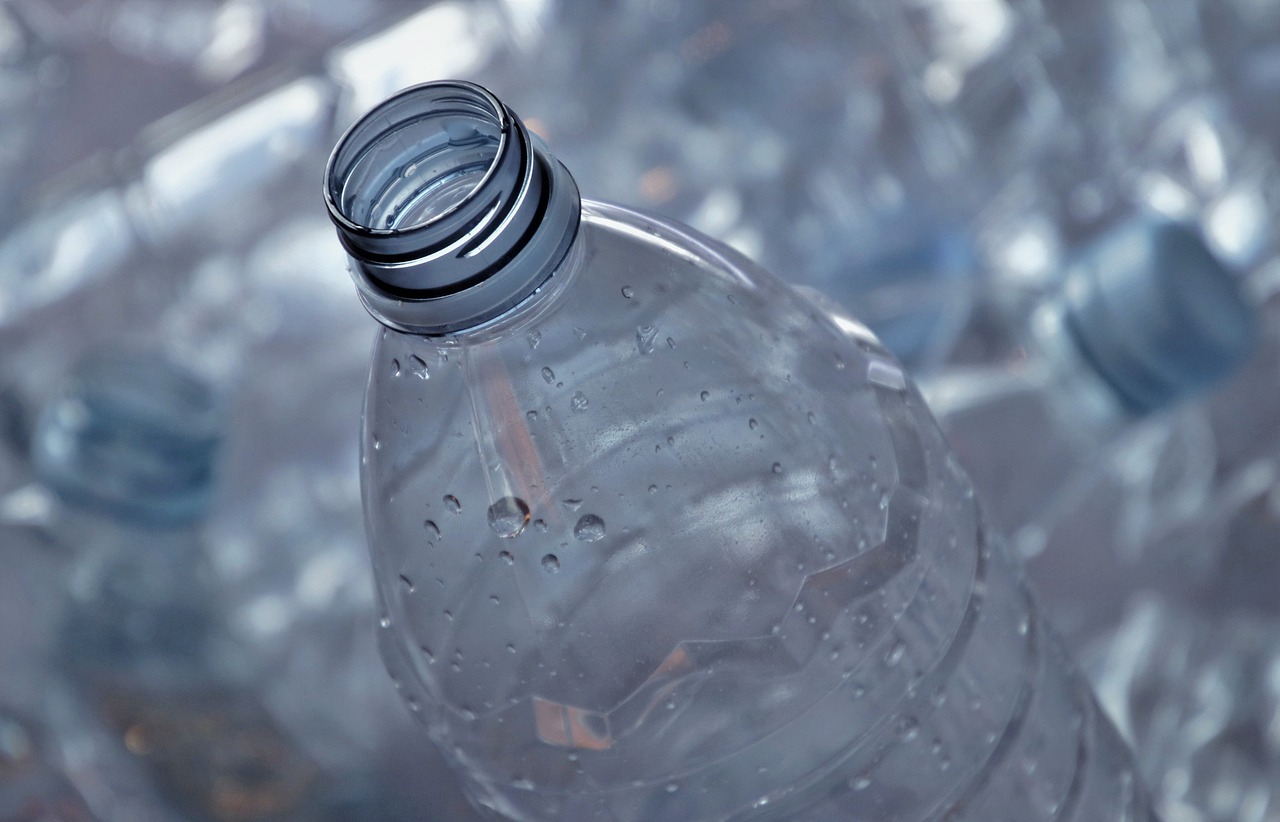
Common Household Electronics
In our daily lives, we are surrounded by an array of household electronics that make life more convenient and enjoyable. From the trusty microwave that heats up your leftovers to the television that keeps you entertained with your favorite shows, these devices play a significant role in our routines. However, many of these everyday items can also pose environmental risks if not disposed of properly.
Did you know that many household electronics contain hazardous materials? For instance, older televisions and computer monitors often contain lead and other toxic substances that can leach into the soil and water if they end up in a landfill. This is why understanding which household electronics can be recycled is crucial. Not only does recycling help to recover valuable materials, but it also prevents harmful substances from entering our environment.
Here’s a quick look at some common household electronics that can typically be recycled:
- Microwaves - Often overlooked, microwaves can be recycled, but check with your local facility as they may have specific guidelines.
- Televisions - With the transition from CRT to flat-screen TVs, many older models need special handling due to hazardous materials.
- Toasters - While they may not seem like a big deal, toasters can be recycled too, depending on the materials used in their construction.
- Washing Machines - These large appliances can be broken down and recycled for their metal and plastic components.
Recycling these items not only conserves natural resources but also minimizes the environmental footprint of our households. It’s like giving a second life to materials that would otherwise become waste. By being proactive about recycling household electronics, you’re not just decluttering your home; you’re also playing a vital role in protecting our planet.
So, the next time you upgrade your microwave or decide to replace that old TV, remember that responsible recycling is not just an option—it’s a necessity. By making informed choices about how we dispose of our electronics, we can significantly contribute to a more sustainable future.

Smartphones and Tablets
Smartphones and tablets have become essential parts of our daily lives. With the rapid pace of technological advancement, many of us find ourselves upgrading our devices every couple of years—or even more frequently! This constant churn leads to a significant amount of electronic waste, which can be incredibly harmful to our environment if not handled properly. Did you know that a single smartphone can contain various precious metals, including gold and silver? Recycling these devices not only helps recover valuable materials but also plays a crucial role in protecting our planet.
When it comes to recycling smartphones and tablets, it’s imperative to consider the sensitive data stored on these devices. Before you toss your old phone into the recycling bin, take a moment to wipe it clean. This step is vital for ensuring that your personal information, such as photos, contacts, and financial data, doesn’t fall into the wrong hands. Here are some simple steps to prepare your device for recycling:
- Backup Your Data: Ensure that all important data is backed up to a cloud service or external storage.
- Factory Reset: Perform a factory reset to remove all personal information from the device.
- Remove SIM and Memory Cards: Take out your SIM card and any memory cards before recycling.
Once your device is ready, the next step is to find a responsible recycling program. Many manufacturers and retailers offer take-back programs where you can return your old devices. These programs often ensure that the devices are recycled in an environmentally friendly manner. Additionally, local e-waste recycling centers are available in many communities, making it easier than ever to dispose of your old gadgets responsibly.
Moreover, recycling smartphones and tablets can have a ripple effect on the environment. By diverting e-waste from landfills, we help reduce the amount of toxic substances, such as lead and mercury, that can leach into the soil and water supply. This not only conserves natural resources but also promotes a healthier ecosystem for future generations.
In conclusion, recycling smartphones and tablets is not just about disposing of old technology; it's about making a conscious choice to protect our environment. By taking the time to prepare your devices properly and choosing responsible recycling options, you are contributing to a more sustainable future. So, the next time you upgrade your device, remember to recycle your old one—it's a small step that can lead to significant positive changes!
Q: What happens to my data when I recycle my smartphone?
A: If you properly wipe your device by performing a factory reset and removing all personal data, your information should be secure. However, it's always best to back up your data before recycling.
Q: Can I recycle a broken smartphone or tablet?
A: Yes! Many recycling programs accept broken devices. They often have the means to recover valuable materials, even from damaged gadgets.
Q: Are there any costs associated with recycling electronics?
A: Most recycling programs are free, but some manufacturers may charge a fee for specific items. It's best to check with your local recycling facility for details.
Q: How can I find a recycling program near me?
A: You can search online for local e-waste recycling centers or check with electronics retailers, as many offer take-back programs.

Computers and Laptops
Computers and laptops are the backbone of our digital lives, but they also contribute significantly to electronic waste when they reach the end of their usable life. These devices are packed with valuable materials such as metals, plastics, and even rare earth elements. When you consider that millions of computers are discarded each year, the impact on our environment can be staggering. Recycling these devices not only helps in recovering these valuable materials but also plays a crucial role in reducing the harmful effects of e-waste on our planet.
So, what exactly happens to your old computer or laptop when you recycle it? The recycling process typically involves several steps:
- Collection: The first stage is gathering the discarded electronics at a certified recycling facility.
- Data Destruction: Before recycling, it's essential to ensure that all personal data is securely erased. Many facilities offer data destruction services to protect your information.
- Disassembly: Once at the facility, technicians carefully disassemble the devices to separate recyclable components.
- Material Recovery: After disassembly, valuable materials such as copper, aluminum, and plastics are extracted for reuse.
- Responsible Disposal: Any hazardous materials, like batteries or circuit boards, are disposed of in an environmentally safe manner.
By recycling computers and laptops, you not only help reduce landfill waste but also contribute to a circular economy where materials are reused and repurposed. For instance, the metals recovered from old devices can be used to manufacture new electronics, significantly lowering the demand for virgin resources. It’s like giving your old tech a second life!
Moreover, many manufacturers and retailers now have take-back programs, allowing you to return your old devices directly to them. This not only simplifies the recycling process but also ensures that the devices are handled responsibly. So, the next time you upgrade your computer or laptop, remember that recycling is a responsible choice that benefits both you and the environment.
Q: Can I recycle my computer at home?
A: While some components can be recycled at home, it's best to take your entire computer to a certified recycling facility to ensure proper handling and data destruction.
Q: What should I do with my data before recycling?
A: Always back up your data and then perform a factory reset or use data wiping software to securely erase your information before recycling.
Q: Are there any fees for recycling electronics?
A: Some facilities may charge a fee for recycling certain items, especially if they contain hazardous materials. However, many local programs offer free recycling options.
Q: What happens to my old laptop after recycling?
A: After recycling, your old laptop will be disassembled, and its components will be sorted for material recovery, while hazardous materials will be disposed of safely.
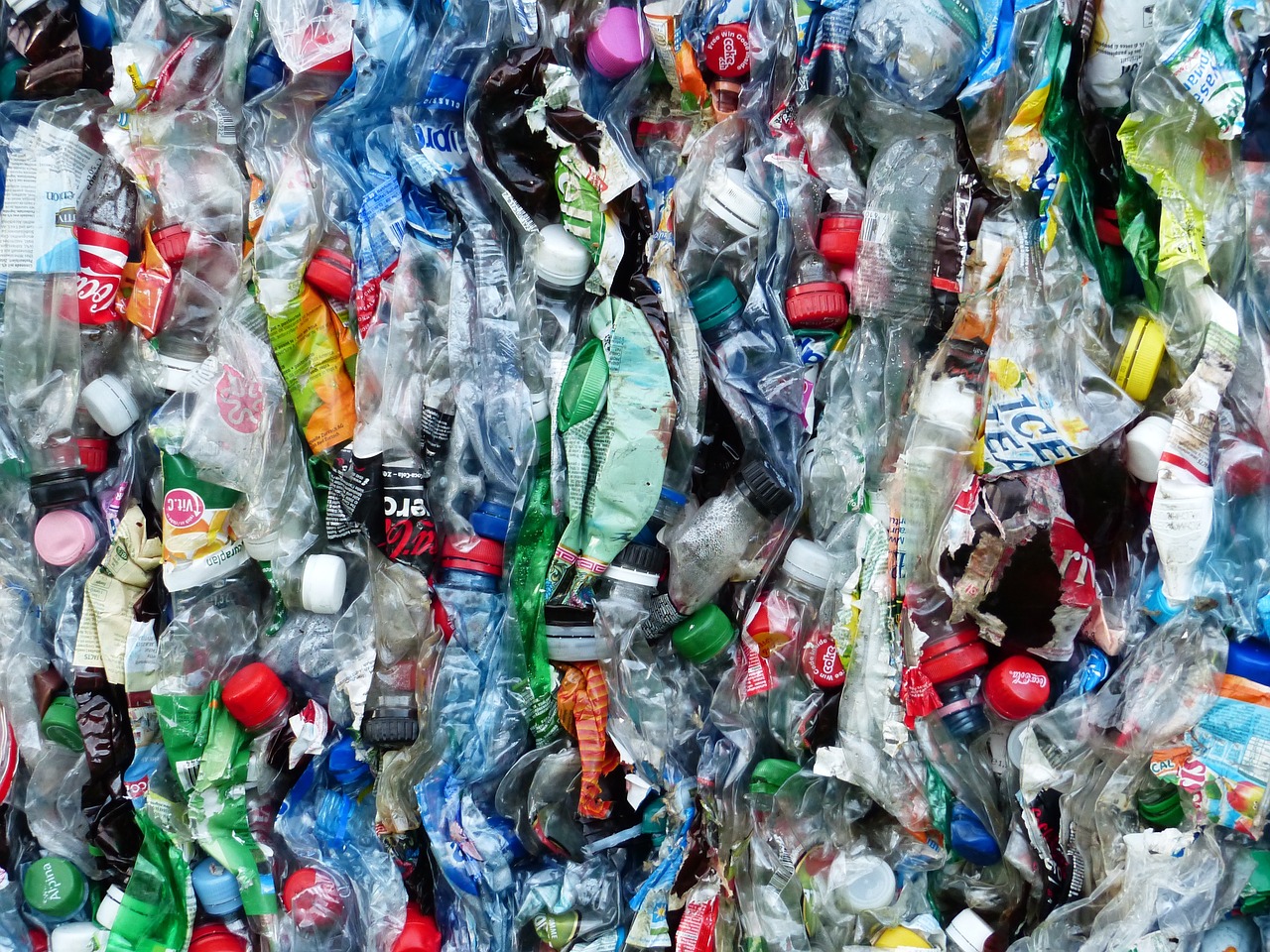
Commercial Electronics
In today's fast-paced business environment, play a pivotal role in driving productivity and efficiency. However, with the rapid advancement of technology, businesses often find themselves upgrading their devices more frequently than ever. This leads to a substantial amount of electronic waste, which can have a significant impact on the environment if not managed properly. Just think about it: every outdated computer, printer, or server contributes to the growing pile of e-waste that can take years to decompose in landfills.
Understanding the importance of recycling commercial electronics is crucial for any business aiming to minimize its environmental footprint. Proper recycling not only helps in conserving valuable resources but also supports the circular economy by ensuring that materials are reused rather than discarded. Furthermore, responsible disposal of electronics can enhance a company's reputation, showing clients and stakeholders that the business is committed to sustainability and environmental stewardship.
Many commercial electronics contain hazardous materials, such as lead, mercury, and cadmium, which can leach into the soil and water if disposed of improperly. Therefore, businesses should prioritize recycling to prevent these harmful substances from entering the ecosystem. Here are some common types of commercial electronics that can be recycled:
- Computers and Laptops: These devices often contain metals like gold and silver, as well as plastics that can be repurposed.
- Printers and Copiers: Toner cartridges and other components can be recycled, reducing waste and conserving resources.
- Televisions and Monitors: Older models may contain harmful materials that require special handling.
- Networking Equipment: Routers, switches, and other networking devices can be recycled to recover valuable metals.
Many businesses are unaware of the regulations surrounding electronic waste disposal, which can lead to hefty fines and legal repercussions. To avoid this, it’s essential to partner with certified recycling facilities that adhere to local and national laws regarding e-waste. These facilities not only ensure safe disposal but can also provide documentation that proves compliance with environmental standards.
In addition, companies can implement an e-waste recycling program to streamline the process of disposing of outdated electronics. This can include:
- Establishing a schedule for regular electronic waste pickups.
- Educating employees about the importance of recycling electronics.
- Creating a designated area for collecting old devices.
By taking these steps, businesses can significantly reduce their environmental impact while promoting a culture of sustainability. It's not just about compliance; it's about making a positive contribution to the planet. So, the next time your business upgrades its technology, remember that responsible recycling is not just a good practice—it's a vital part of being a responsible corporate citizen.
Q: Why should businesses recycle their electronics?
A: Recycling electronics helps reduce waste, conserves natural resources, and prevents hazardous materials from harming the environment. It also enhances a company's reputation for sustainability.
Q: What happens to the electronics after they are recycled?
A: Recycled electronics are dismantled, and valuable materials are recovered for reuse. Hazardous materials are disposed of safely, minimizing environmental impact.
Q: How can a business find a certified recycling facility?
A: Businesses can search online for local recycling programs or consult with industry associations that provide lists of certified e-waste recyclers.
Q: Is there a cost associated with recycling commercial electronics?
A: Some recycling facilities may charge a fee, while others may offer free services. It's important to compare options and find a facility that meets your needs.

Steps to Recycle Your Electronics
Recycling electronics can feel like a daunting task, but it doesn’t have to be! By following a few simple steps, you can ensure that your old gadgets are disposed of responsibly, making a positive impact on the environment. First and foremost, it’s essential to prepare your electronics for recycling. This means taking a moment to remove any personal data from your devices. Think about it: just like you wouldn’t leave your house unlocked when you go away, you don’t want to leave your personal information vulnerable. Use factory reset options for smartphones and tablets, and for computers, consider wiping the hard drive. This protects your privacy while also making the recycling process smoother.
Once your devices are data-free, the next step is to clean them up. Give your electronics a quick wipe down to remove any dust or grime. Not only does this make the recycling process easier, but it also shows respect for the people who will handle your items. After all, would you want to deal with a dirty old gadget? Probably not!
Now that your electronics are clean and data-free, it’s time to find a recycling facility. This is where many people stumble, thinking that any trash can will do. But hold on! You want to locate a certified recycling facility that specializes in electronic waste. Many local and national programs exist to help you safely dispose of your devices. You can often find these facilities through a quick online search or by checking with your local waste management authority. Remember, not all recycling centers are created equal—some may not handle electronics properly, leading to environmental hazards.
To further assist you in finding the right recycling facility, consider creating a
| Facility Name | Location | Contact Number | Hours of Operation |
|---|---|---|---|
| Green Electronics Recycling | 123 Eco St, Your City | (123) 456-7890 | Mon-Fri 9am-5pm |
| Tech Waste Solutions | 456 Clean Rd, Your City | (987) 654-3210 | Sat 10am-4pm |
After you’ve found a suitable recycling facility, it’s time to transport your electronics there. Make sure to pack your devices securely to prevent any damage during transit. It’s also a good idea to check if the facility has specific drop-off guidelines, such as whether you need to make an appointment or if they accept certain types of electronics only.
Lastly, don’t forget to spread the word about recycling electronics! Share your experience with friends and family. Encourage them to join you in this eco-friendly journey. After all, the more people who recycle, the greater the positive impact on our planet. You might even inspire someone to take action who hadn’t thought about it before!
- What types of electronics can I recycle? Most household electronics like smartphones, computers, printers, and televisions can be recycled. Always check with your local facility for specifics.
- Is there a cost to recycle my electronics? Many facilities offer free recycling services, but some may charge a fee for specific items. It’s best to inquire beforehand.
- Can I recycle batteries with my electronics? Batteries often require special handling and should be recycled separately. Check with your recycling center for their policies.
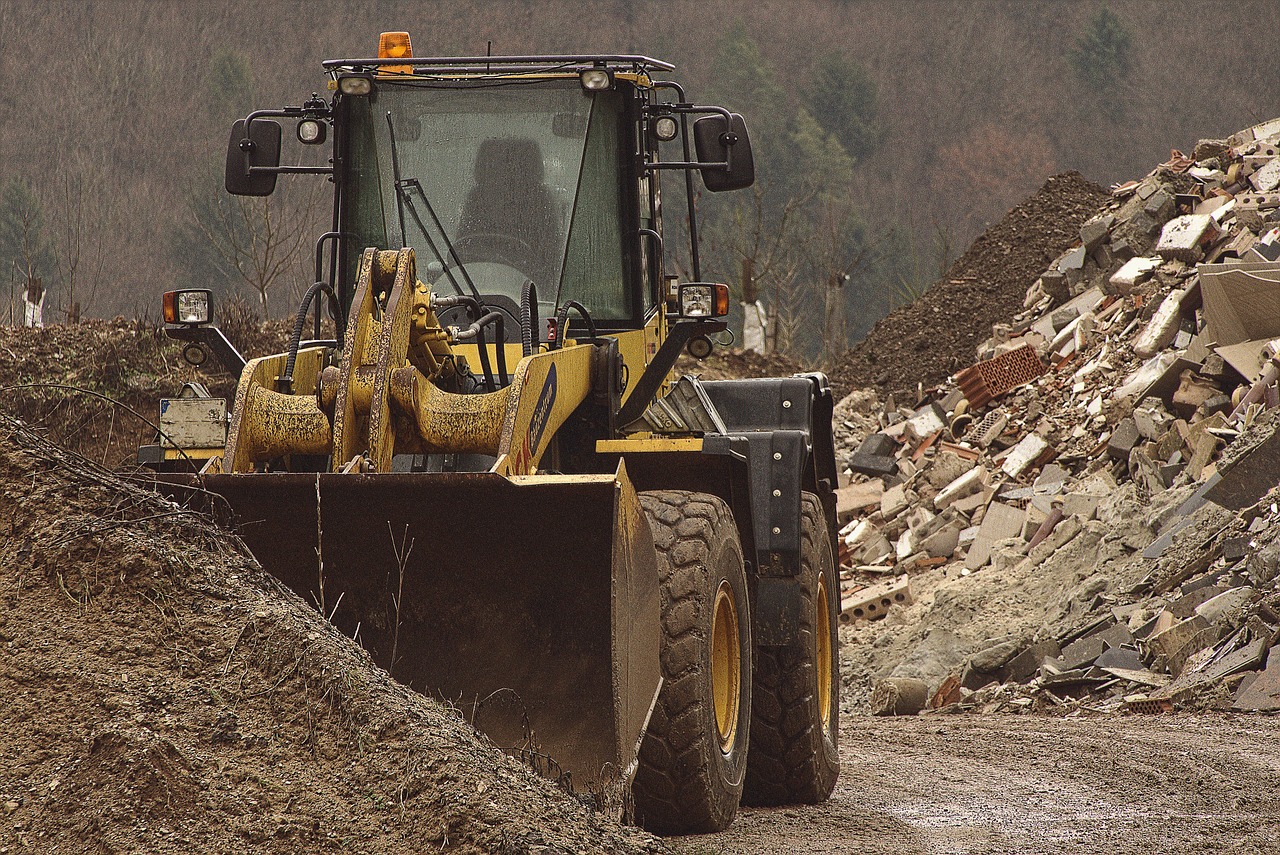
Preparing Electronics for Recycling
Before diving into the recycling process, it's crucial to prepare your electronics properly. This preparation is not just a formality; it's a vital step that ensures both your personal data remains safe and the recycling process goes smoothly. Think of it as getting your house ready for guests—cleaning up and organizing makes everything easier and more efficient.
First and foremost, you need to remove any personal data from your devices. This is especially important for items like smartphones, tablets, and computers, where sensitive information can easily be accessed if not properly wiped. Here’s a quick rundown of how to do this:
- Smartphones and Tablets: Perform a factory reset, which will erase all your data. Don’t forget to remove your SIM card!
- Computers: Use software tools to securely erase your hard drive or simply remove the hard drive altogether if you are unsure.
- Other Devices: For devices like printers or gaming consoles, refer to the manufacturer's instructions for data removal.
Once your personal data is safely erased, the next step is to clean your devices. Dust and grime can accumulate over time, so give your electronics a good wipe down. This not only makes them more presentable for recycling but can also help in the recycling process itself. A clean device can be more easily dismantled and processed, which can aid in recovering valuable materials.
Additionally, check for any accessories that may need to be recycled as well, such as chargers, cables, and batteries. These items often have their own recycling protocols, so it's essential to handle them appropriately. For instance, batteries should never be thrown in the trash due to their hazardous materials. Instead, look for dedicated battery recycling programs in your area.
Lastly, gather all your prepared electronics in one place, making it easier to transport them to your chosen recycling facility. This organization not only simplifies the process for you but also ensures that nothing is left behind. Just like packing for a trip, the more organized you are, the smoother your journey will be!
1. Why is it important to wipe my data before recycling?
It's essential to wipe your data to protect your personal information from falling into the wrong hands. Identity theft is a real concern, and taking this precaution can help safeguard your privacy.
2. Can I recycle old batteries?
Yes, but batteries must be recycled through specific programs due to their hazardous materials. Many electronics recycling centers have designated drop-off spots for batteries.
3. Are all electronics recyclable?
Not all electronics can be recycled. Items like microwaves and certain appliances may have specific disposal requirements. Always check with your local recycling facility for guidelines.
4. What happens to my electronics after I recycle them?
Once recycled, your electronics are dismantled, and their components are sorted. Valuable materials like metals and plastics are recovered and repurposed, while hazardous materials are disposed of safely.

Finding a Recycling Facility
When it comes to recycling electronics, the first step is to find a reliable recycling facility. This can feel overwhelming, but it’s easier than you might think! Start by considering local options; many communities have designated drop-off locations specifically for electronic waste. These facilities are often equipped to handle various devices, ensuring they are processed in an environmentally friendly manner. You can also check with your local government or waste management authority for information on nearby recycling programs.
Another great resource is the internet! A quick search can reveal a wealth of information about certified e-waste recycling centers in your area. Websites like Earth911 or the EPA provide tools that allow you to input your zip code and find nearby recycling facilities. These resources can help you locate places that follow the necessary regulations and practices for safe disposal. Remember, not all recycling centers are created equal, so look for those with certifications from recognized organizations.
In addition, many major retailers have taken the initiative to offer recycling programs for electronics. Stores like Best Buy and Apple have set up drop-off points where you can bring your old devices. These programs are not only convenient but also ensure that your electronics are handled responsibly. Before you go, check the store’s website to see what items they accept, as there may be specific guidelines.
As you search for a recycling facility, keep in mind the following important factors:
- Certifications: Ensure the facility is certified by organizations like R2 (Responsible Recycling) or e-Stewards. This guarantees they adhere to best practices in electronic waste recycling.
- Location: Choose a facility that is convenient for you to access. This increases the likelihood that you’ll actually recycle your electronics rather than letting them accumulate.
- Accepted Items: Confirm which items the facility accepts. Some may only take certain types of electronics, so it’s best to check ahead.
Finally, don't forget to ask about their recycling process. A reputable facility should be transparent about how they handle the electronics, including whether they refurbish, recycle, or dispose of them. Understanding this process not only gives you peace of mind but also reinforces your commitment to responsible recycling.
By taking the time to find a certified recycling facility, you’re not just getting rid of old electronics; you’re making a significant contribution to reducing electronic waste and protecting our planet. It’s a small step for you, but a giant leap for the environment!
Q: What types of electronics can I recycle?
A: Most facilities accept a wide range of electronics, including computers, smartphones, tablets, televisions, and household appliances. However, it's always best to check with the specific facility for their accepted items.
Q: Is there a fee for recycling my electronics?
A: Some facilities may charge a small fee, especially for larger items like televisions. However, many places offer free recycling for certain types of electronics, so it’s worth investigating your options.
Q: What happens to my data when I recycle my electronics?
A: Responsible recycling facilities will ensure that all personal data is securely wiped from devices before recycling. You can also take extra precautions by performing a factory reset or removing hard drives yourself.
Q: Can I recycle electronics through my regular trash collection?
A: No, electronics should not be disposed of in regular trash due to the hazardous materials they may contain. Always use designated recycling facilities to ensure safe disposal.
Frequently Asked Questions
- Why is recycling electronics important?
Recycling electronics is crucial because it helps reduce the amount of e-waste that ends up in landfills. This not only conserves natural resources but also minimizes environmental pollution. By recycling, we can recover valuable materials and keep hazardous substances out of our soil and water.
- What types of electronics can be recycled?
Many common household electronics can be recycled, including smartphones, computers, televisions, microwaves, and toasters. It's important to check local recycling guidelines to ensure you're recycling the right items.
- How should I prepare my electronics for recycling?
Before recycling your electronics, it’s essential to remove any personal data. This can include factory resetting devices and removing SIM cards or memory cards. Additionally, make sure the devices are clean, as this helps facilitate the recycling process.
- Where can I find a certified recycling facility?
Finding a certified recycling facility can be done through local government websites or national recycling programs. Many communities have designated drop-off locations or events specifically for electronic waste, making it easier for you to recycle responsibly.
- What happens to my electronics after I recycle them?
Once you recycle your electronics, they are typically taken to a facility where they are dismantled. Valuable materials like metals, plastics, and glass are recovered and processed for reuse, while hazardous materials are disposed of safely to prevent environmental harm.
- Can I recycle my smartphone or tablet?
Absolutely! Smartphones and tablets are highly recyclable. Many manufacturers and retailers offer trade-in or recycling programs that ensure your old devices are handled responsibly and that valuable materials are recovered.
- Are there any fees associated with recycling electronics?
Some recycling programs may charge a fee, especially for larger items like televisions or monitors. However, many local programs offer free recycling options. It’s best to check with your local facility for specific details.

